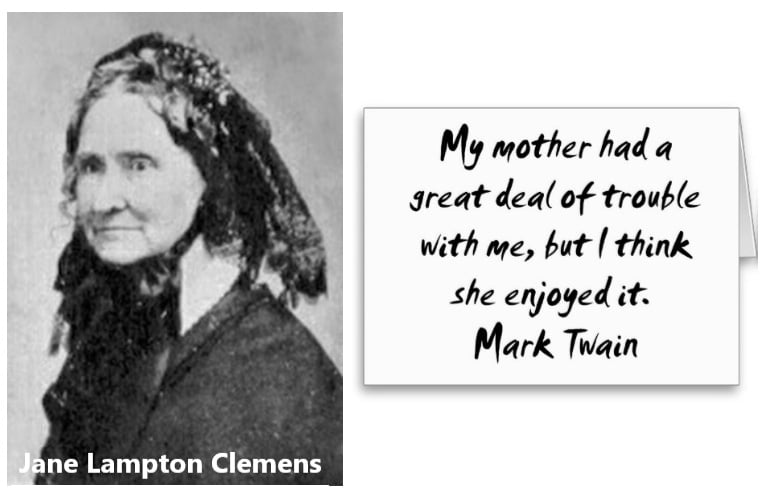
“Many of the characteristics that made Mark Twain famous were inherited from his mother”, Albert Bigelow Paine wrote in his authorised biography of this famous American writer. Although he inherited his mother’s sense of humour and his philosophy from his mother, the best known aspect of his character through which he could thank his mother was his love of animals. Mark Twain didn’t just love cats the had an enormous sympathy for all animals.
For example, he had a respect and affection for dogs judging by three of his sayings,
“Heaven goes by favour. If it were by merit, you would stay out and your dog would go in.”
“If you pick up a starving dog and make him prosperous, he will not bite you. This is the principal difference between a dog and a man.”
“The dog is a gentleman; I hope to go to his heaven, not man’s.”
Although, he did not regard the dog as a noble animal because he said that the more brutal and cruel people were to the dog the more adoring and slave-like the dog became. In contrast, if you misuse and abuse a cat “she will always maintain a dignified reserve towards you afterward – you will never get her full confidence again.”
Dogs were held in his esteem but cats were close to his heart. And underpinning that love of cats was his mother’s empathy and desire to protect animals. Paine wrote, “Her sense of pity was abnormal. She refused to kill even flies.”

In the words of Mark Twain, his mother was the “natural ally and friend of the friendless”. It is said that she once snatched a whip away from a cab driver who was beating a horse. She made the man promise never to abuse a horse again. Although, she only allowed cats as pets in the home. And there were lots of cats in her home as Mark Twain was growing up.
In 1845, when he was a child, there were 19 cats in the home. It kind of conjures up a picture of controlled cat hoarding! I don’t want to be disrespectful. They were all loved and well cared for I’m sure. And I also expect that the home was spacious to easily accomodate them.
It is said that they were a ‘vast burden’ to his mother but I guess a welcome one. Indeed 19 cats will be a big responsibility. It seems that they were rescued. They were all moggies by today’s standards. Let’s remember that in 1845 the cat fancy had not been created. There were no purebred, pedigree cats at that time or if there were some they were exceptionally rare and they weren’t registered with cat associations because they didn’t exist either.
These were cats which they had acquired – undistinguished creatures – but in need of help. And it seems that Mark Twain’s mother insisted that pets were not caged. She hated imprisoned creatures. That’s an interesting thought because you wonder how she would have responded to the modern-day trend of keeping cats indoors full-time in order to keep them safe and protect wildlife. I suspect that she would have disagreed with it. However, back in the day when the human population of America was a fraction of what it is today, and there was more wildlife and conservation was not a major issue, there would have been no talk about keeping cats indoors.
His mother was surrounded by cats in childhood and he was surrounded by cats in the last years of his life. He lived in several fine homes in his life including a house named Stormfield, a mansion built in Redding, Connecticut. He lived there from 1908 until his death in 1910.

It is said that a cat was always “purring on the hearth” at Stormfield. His deep fondness for this “clean, intelligent domestic animal” (in the words of his biographer, Paine) remained to the end. There were never too many cats at Stormfield. The cats owned his home and they occupied all parts of the house. If Mark Twain was indifferent to people in the house he always paid attention to his cats.
He would “arise from the table and carry certain choice food out to the terrace to Tammany and be satisfied with almost no acknowledgement by way of appreciation. One could not imagine any home of Mark Twain where cats were not supreme.”
ASSOCIATED PAGES:

